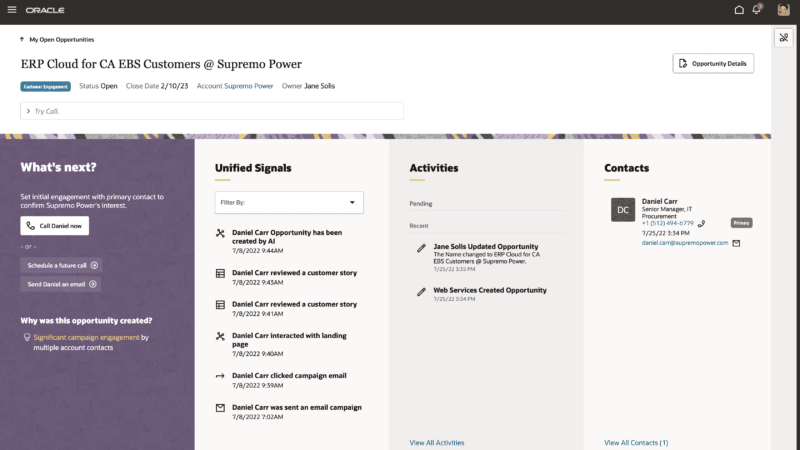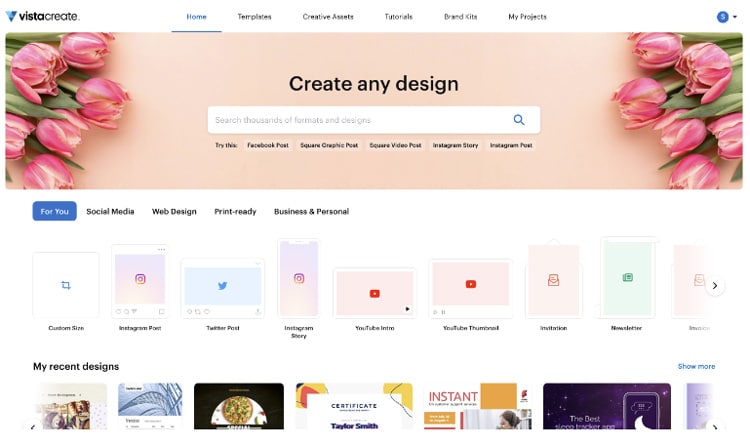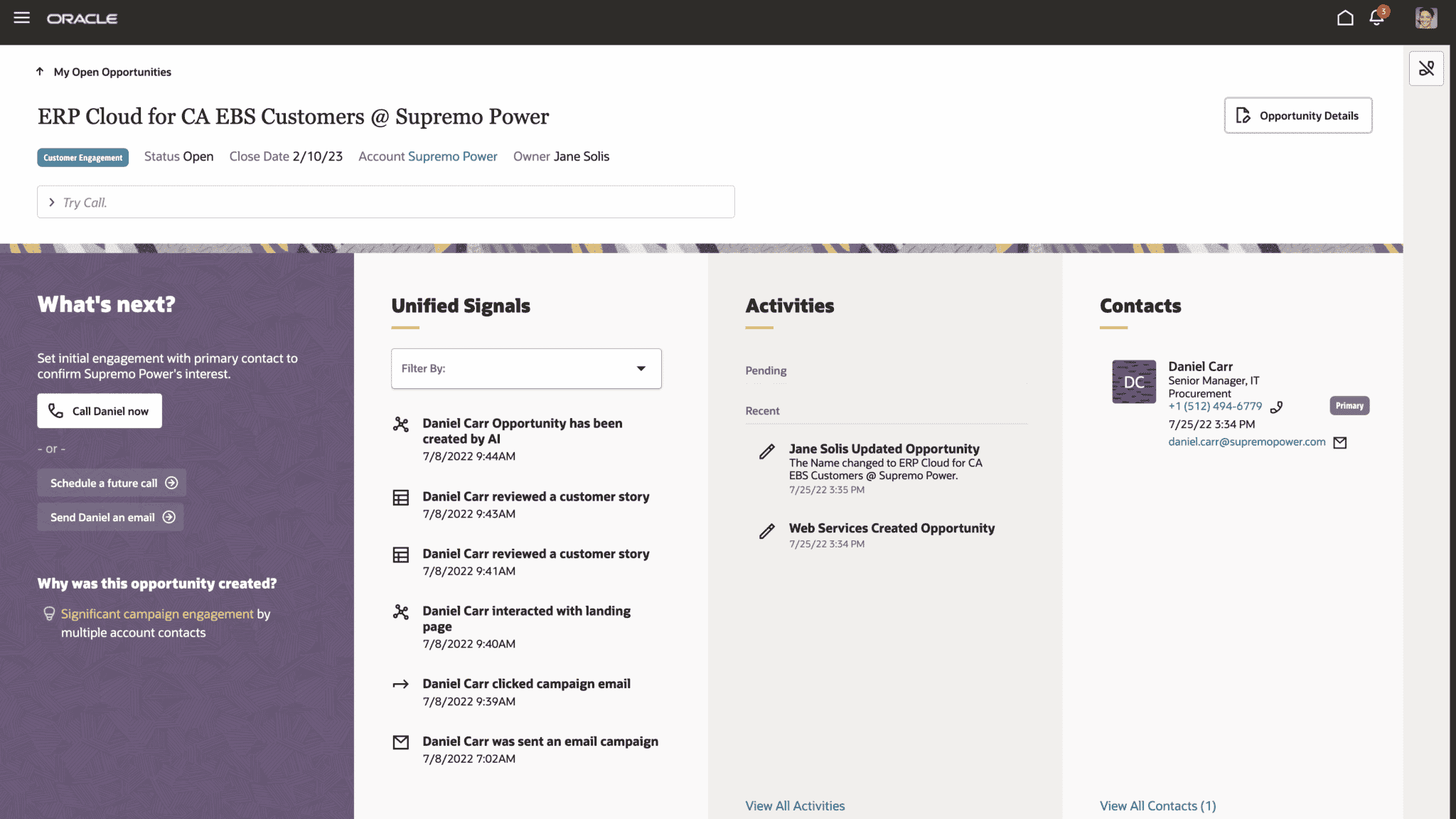Oracle has announced the launch of the next generation of AI-powered Oracle Fusion Sales as part of Oracle Fusion Cloud Customer Experience. Fusion Sales generates automatic recommendations for the last steps to closing deals, including quotes and proposals.
EVP and general manager of Oracle CX Rob Tarkoff described Fusion Sales as the second deliverable on Oracle’s marketing and sales strategy following the launch of Oracle Fusion Marketing in September 2021. “This next generation selling system takes those conversion-ready opportunities and guides sellers through the sales process to maximize the likelihood of closing a deal faster,” said Tarkoff. “By automating mundane tasks and using AI to guide the entire sales and marketing journey, from beginning to end, Oracle Fusion Sales gives sales teams a CRM that is built to make them sell.”

Read next: Oracle Fusion Marketing reduces the role of traditional CRMs
From Fusion Marketing to Fusion Sales. We asked Katrina Gosek, VP Oracle CX product strategy and marketing how Fusion Sales connects with Fusion Marketing. “We’re thinking across application boundaries, across departmental boundaries,” she said. Fusion Marketing is geared to generate, not just leads, but conversion-ready opportunities based on prospects’ interactions with campaigns, and pushes them to CRMs for action.
“Now we’re picking up where that piece left off with the second chapter of the story, Fusion Sales, which takes those opportunities and essentially choreographs a flow to bring those to deal close,” she explained.
Dissatisfaction with existing CRMs. Oracle Fusion Sales presents itself as a response to dissatisfaction with existing CRM systems. A recent report sponsored by Oracle found 27% of sellers saying they have too many manual tasks that get in the way of selling and 50% saying their organization lacks sales processes and/or the technologies that support them.
“CRM is more than just a glorified Rolodex these days,” said Gosek. “We have automation and AI capabilities; but it’s still a fact that a lot of these tools aren’t used optimally. A lot of sales reps are still left piecing data around customer engagement themselves.” Sales reps are still using instinct and intuition, rather than AI, to tell them what they should be doing, she said.
“Let the system, let the CRM focus them on the right opportunities, leveraging artificial intelligence on which opportunities have the highest propensity to close,” she continued. “We have all that data; we can feed it to the ML algorithms, so why not? We’re focusing sales reps on the right data, then putting them on a predictable path through that data so they can get more intelligent proposals and quotes in front of customers, have the right content to put in front of customers and engage with customers in a more meaningful fashion.”
Without naming the obvious competitor, Gosek sought to differentiate Oracle’s offering. “The challenge with traditional CRMs,” she said “is that you have hundreds of fields, hundreds of forms, so much data coming at the sales rep that it’s almost overwhelming. Our new user experience is one of the most differentiating elements of this new Fusion Sales experience.”
The interface, said Gosek, surfaces the information a sales rep should be presenting to a customer. “It’s giving you all kinds of information, but in a very uncluttered and simplified fashion.”

Why we care. With this announcement, Oracle extends its strategy of encroaching on the enterprise CRM space dominated by Salesforce. Oracle Fusion Marketing appropriated almost the entirety of the customer journey leaving only the final stages of proposal, quotes and closings to the CRM. Oracle Fusion Sales seeks to automate those final stages, reducing manual tasks for sales reps and replacing them with a predictable route to closure.
For several years, Oracle has vied with SAP for second place in the enterprise CRM market — but it’s been a distant second place. Fusion Sales shows that Oracle has a long-term strategy to chip away at Salesforce’s lead.
Get the daily newsletter digital marketers rely on.










































![‘Silence of the Prey’ Red Band Trailer Previews New Survival Horror [Exclusive]](https://static1.colliderimages.com/wordpress/wp-content/uploads/2024/04/slience-of-the-prey-featured.jpg)






























